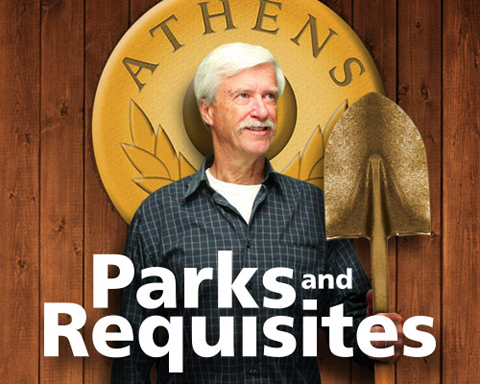The Food Studies theme presents a mouthwatering menu of summer classes that will have students digging in the forest, brewing in the chem lab, and maybe even harvesting some wheat in the Ohio University garden.
Students who want to get their hands dirty may want to practice sustainable agriculture with Dr. Art Trese, but multiple Tier II courses provide a look at food from different perspectives.
See a complete list of Food Studies courses offered in Summer and Fall 2015.
Tier II Summer Food Studies Courses
- BIOS 1030 Human Biology: For non-majors. Humans as biological organisms: our origins, ecology, and inheritance, and functioning of our body systems.
- NUTR 1000 Introduction to Nutrition: Nutrients, their food sources and functions in the body; application to planning adequate diet through life cycle.
- NUTR 1100 Introduction to Food Systems: Components of the food system and all processes that maintain our food supply, including growing, harvesting, processing, packaging, transporting, marketing, consuming, and disposing of food/food packages. Interaction of the food system with social, political, economic and natural environments. Sustainability of the food system. Impact of the food system on nutritional well-being.
- PBIO 1030 Plants & People: Interrelationships of plants and humans from both historical and modern points of view, origins of agriculture and civilization, tropical and temperate food plants, medicinal plants, drug plants, destruction of environment, and its ultimate effect on food plants.
- PBIO 2060 Sustainable Agriculture: Investigation of global and local agriculture with an emphasis on small scale, highly diversified agriculture and local food systems.as a synthesis of human activities. Agriculture will be considered to include the production from plants of food, fiber, fuel, building materials, and medicines. Students will gain direct experience with agriculture by growing an organic garden, preparing compost and testing soils, harvesting crops, seed saving and visiting local farms.
- PBIO 1000 Plants and the Global Environment: For non-science majors. Examines the importance of plants in providing global resources for humans and the impact of human activity on the sustainability of these resources. The course places a particular focus on the importance of climate and energy policy as they relate to our uses of plants and the impact that changing climate would be expected to have on plants.
CHEM 4501 The Principles of Brewing Science
This summer, the department of Chemistry and Biochemistry will once again offer its Tier III course, CHEM4501: Principles of Brewing Science. Through the practice of beer making, this course covers fundamental concepts in biochemistry, physiology, microbiology, and plant biology. In addition to the science, the course also explores historical perspectives, business aspects, and health impacts associated with beer making and consumption.
CHEM4501 is offered as a hybrid lecture/lab format. It is instructed by Dr. Mick Held (Biochemistry) and is augmented with several expert guest lecturers. This year’s guests include Dr. Art Trese (Environmental & Plant Biology), Dr. Darlene Berryman (Ohio University Diabetes Institute Director), Dr. Ruth Palmer (Classics & World Religions), Art Oestrike (Jackie O’s Owner), and Brad Clark (Jackie O’s Head Brewer).
ANTH 4911 Field School in Ohio Archaeology
In the warm summer mornings, students can discover the prehistoric past of the Hocking Valley with Dr. Paul Patton, Assistant Professor of Anthropology. Field school is 8 credit hours over both summer sessions. Students will spend time excavating a nearby Native American habitation site ca. 5000 years ago. They will learn anthropology fieldwork methods, analyze artifacts, and explore diet and domestic life.




















Comments